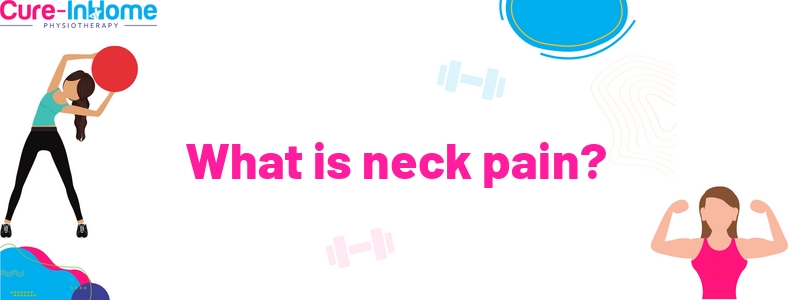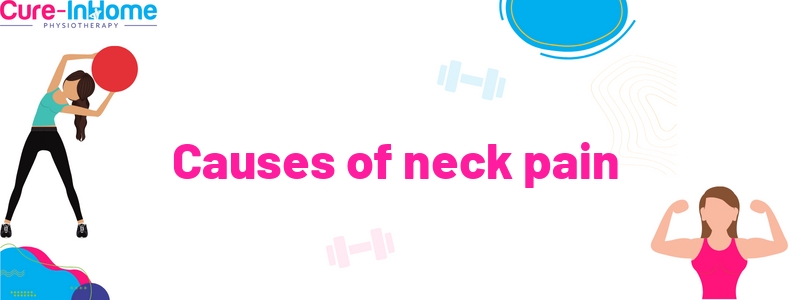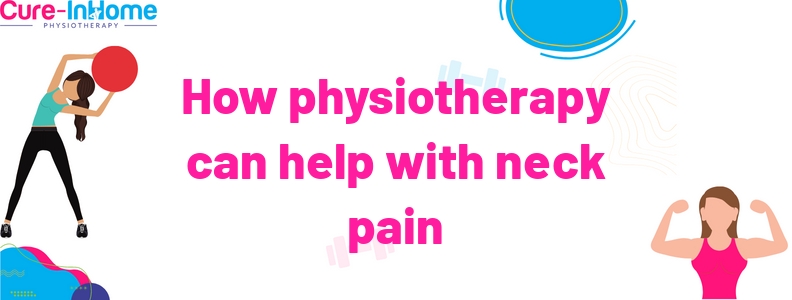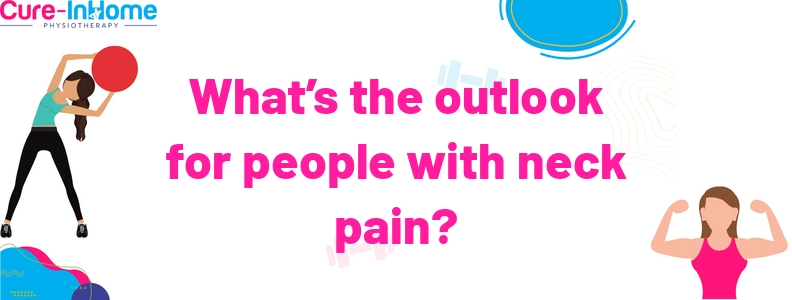
What Is Neck Pain?

What Is Neck Pain?
What is neck pain?
Neck pain is a common problem, impinge oning millions of people around the world. It can range from mild discomfort to severe, disabling pain. Neck pain can definitely be the result of many things, including awkward positioning of the neck during the course of sleep or activity, nerve damage as a result of an injury, muscle strain or sprain from carrying a heavy object or spending too much time in one position, and diseases like arthritis.
Sometimes neck pain is temporary and can definitely be relieved with over-the-counter medications or treatments like massage or stretching. Other times, however, it can definitely be chronic and require more intensive treatment like physical therapy and injections to relieve the pain.
If you are experiencing any type of neck pain that lasts longer than a few days, it’s important to speak with your doctor. They will help pinpoint the underlying reason for your neck pain and recommend treatments accordingly. Depending on what’s causing your neck pain, they may recommend medical procedures like injections or surgery to provide relief. They may also suggest lifestyle changes like using pillows for support when sleeping or sitting for long periods of time. Alas, regular exercise could help reduce tension in the muscles of your neck and improve flexibility in your joints.
No matter what is causing your neck pain, it’s important not to ignore it — seeking treatment early often leads to quicker recovery and less disruption in daily life!

Neck Pain Symptoms
Neck pain symptoms can definitely be the result of a variety of physical and mental issues, including trauma, carrying heavy objects, sleeping in awkward positions, staying in one position for too long, poor posture and stress. Neck pain is a common complaint among many individuals. It can range from mild to severe and may last for days as well as weeks.
Neck pain is often accompanied by other symptoms like headaches, shoulder pain and stiffness, dizziness and tinnitus. It can result in arm weakness or numbness in the hands or fingers. Pain or discomfort in the neck can develop gradually or come on suddenly as a result of an injury or trauma. If you’re experiencing neck pain, it’s important to figure out the underlying cause so you can find A smart way to treat it.
The good news is that neck pain can usually be practically managed with lifestyle changes, relaxation techniques and alternative therapies. Exercises that focus on fortifying your core muscles and improving your posture are especially beneficial. Regular stretching of the muscles surrounding your neck helps maintain flexibility so you can move without discomfort. For acute cases of neck pain which are not caused by any underlying medical condition, over-the-counter medications like ibuprofen might help relieve the symptoms temporarily while avoiding more powerful prescription drugs like opioids if possible.
If your neck pain persists, it's recommended you consult with a doctor or other qualified health professional who will perform an assessment to rule out any serious conditions like whiplash, muscle inflammation or disc herniation before offering advice about treatment options for long-term relief of your symptoms. They may suggest physical therapy along with lifestyle modifications like improving your posture when sitting at work or taking frequent breaks from activities that require you to stay in one position for too long (like working at a computer).
Whether you have recurring neck pain stemming from everyday stressors or sharp shooting pains resulting from an injury, know that there are treatments available that can help ease the discomfort and prevent future episodes so you can continue living life without stiffness and soreness restricting your movements!

Causes Of Neck Pain
Causes of neck pain
Neck pain can definitely be a discomfort, an annoyance and even a disability. It may have its roots in medical, orthopedic or psychological causes and can range from a mild ache to a severe, chronic pain. Understanding the possible causes of neck pain is important for seeking the correct treatment.
Physical trauma is one of the leading causes of neck pain. A fall, an auto accident and even a sports injury are all potential culprits. These types of incidents may cause damage to muscles and supportive tissues in the neck area and result in constant pain in the area. Whiplash injuries are particularly common when there has been some sort of traumatic event that causes one's head to be jerked forward violently before snapping back again.
Poor posture is another frequent cause of neck pain. Poor alignment of the spine can cause tension in neck muscles or ligaments, which usually may contribute to soreness and stiffness over time. This kind of misalignment can also pinch nerves that pass through the spine, leading to radiating pain through arms or shoulders that extend beyond just the area surrounding your neck itself.
If you have sustained an injury or changed something about your daily routine (like starting at a new job where you sit for long hours), consider speaking with your doctor about possible treatments for any resulting neck problems like massage therapy, chiropractic services or physical therapy. Your doctor may also recommend taking certain medications like Nonsteroidal Anti-inflammatory Drugs (NSAIDs) or opiates if necessary to reduce inflammation and alleviate discomfort associated with your neck issue. In many instances, more intensive interventions like injections might be beneficial depending on what type of symptoms you're experiencing as a result of your problem with your neck.*
Ultimately, understanding what could potentially be causing your neck pain provides you with extra insight into necessary steps toward finding relief from it as soon as humanly possible—allowing you get back into daily life activities without having to worry so much about this source or annoyance constantly pestering you every day!

How Physiotherapy Can Help With Neck Pain
How physiotherapy can help with neck pain
Neck pain is a common problem that can definitely be the result of various reasons, including poor posture, muscle tension or strain, an injury, or degenerative conditions like arthritis. While neck pain can more often than not be managed with home remedies like rest, heat therapy and over-the-counter pain medications, physiotherapy can also be a highly practical treatment option for those suffering from painful and persistent neck issues.
Physiotherapists use their specialized expertise to diagnose the underlying reason for your neck pain and develop an individualized treatment plan to help manage it. This plan may include manual therapies like massages, which usually may help to reduce muscle tightness and alleviate tension in the areas surrounding the neck; therapeutic exercises that can enhance mobility and strength; and postural advice that will help you maintain correct posture throughtout the duration of daily activities. Alas, there are certain types of taping techniques that may help relieve tension or stabilize the muscles in order to reduce pain.
Moreover, depending on the reason for the neck pain, your therapy might also focus on helping you learn how to better manage stress levels. High levels of stress can more often than not result in increased muscular tension in the shoulders and neck area which usually may compound existing problems or result in new ones. Your physiotherapist may provide techniques like relaxation exercises that aim to lower stress levels while also promoting physical well-being.
The overall goal of physiotherapy is to not only provide relief from current symptoms but also prevent future problems from arising. By addressing root causes, increasing strength and flexibility in relevant areas, and teaching correct movement patterns that support good posture, physios work with you towards improving your long-term health outcomes!

What’s The Outlook For People With Neck Pain?
What’s the outlook for people with neck pain?
If you’ve got neck pain, you’re likely looking for some answers and relief. We understand – it can definitely be uncomfortable, tough to handle, and even impinge on your ability to do the things you love. Fortunately there are many schemes available to help ease neck pain, prevent it from happening again, and keep you healthy over the course of many years.
First off: rest is key! Taking breaks away from activities that require a lot of stretching or strain on your neck can definitely be a major benefit. If you’ve been sitting at your desk all day, take a five-minute break every hour or so just to stretch out and move around if possible. It sounds small but can make a big difference in preventing neck pain.
Secondly, look into physical therapy. Working with a professional can provide personalized treatment options for managing your neck pain. Physios are experts in finding out what works best for each individual person when dealing with issues like this one – they can give exercises specifically tailored towards your needs that help build strength and stability. It's recommended you look into massage therapy as well; it relaxes tight muscles and helps improve circulation which promotes healing of any injuries in the area.
Finally, consider lifestyle changes like quitting smoking or reducing stress levels as these have an effect on overall physical health along with on illnesses like neck pain as a result of muscle tension or injury complications. The good news is that corrections in lifestyle can help reduce the likelihood of having issues like these in the future so taking steps today will only bring positive effects tomorrow!
At the end of the day, everybody is different and no single approach or solution works perfectly for everyone but there are plenty of ways to aim towards healthier body functioning which includes reducing neck pain symptoms significantly – don’t give up on yourself because there are plenty of options available!

Conclusion
What is neck pain?
Neck pain is a common condition that can range in severity from minor discomfort to severe disability. It can definitely be the result of an injury, poor posture, or underlying medical condition. Treatment may involve lifestyle changes, medications, physical therapy, or injections. It's recommended you speak with your doctor or physiotherapist to identify the best treatment options for you.
